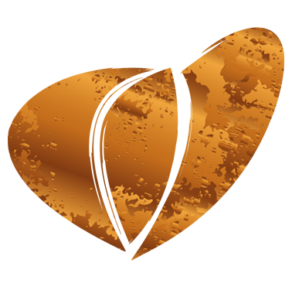- 1982: DE was founded as a feminist ensemble collective by Stacy Klein, with co-founder and emerita ensemble member Carroll Durand, and several other women, in Boston, MA. Subsequently named the Women’s Cycle, the first 6 performances comprised a series of adapted plays including Rites by Maureen Duffy and My Sister in this House by Wendy Kesselman. The Ensemble was itinerant and performed in six-week rentals of various Boston theatres.
- 1985: The Ensemble located a parish hall in Allston, MA, a long-unused building at the Episcopal Church of Saints Luke and Margaret. Following renovations this was DE’s home for the next 12 years and allowed the development of a full-time practice (after the day jobs which the Ensemble depended on financially). A daily psycho-physical training and theatre creation process evolved side-by-side with the business survival needs of the company. The new home provided a base to tour the Women’s Cycle project / production to the Framingham State Women’s Prison, domestic violence shelters, schools, as well as international women’s theatre festivals. It also established an artistic mentorship and student programs that still continue.
- Concurrently founder Stacy Klein, joined by members of the Ensemble, went to Odin Teatret in Denmark for three months to research her PhD dissertation and to Sardegna, Italy to continue training and research begun in 1976 in Poland with her teacher Rena Mirecka, founding actress of Grotowski’s Laboratorium. Out of this journey both the Song Trilogy Cycle and the “extra- theatrical” Republic of Dreams projects were born (1985-2000). The expedition resulted in a documentary of the same title. The Song Trilogy derived from the genocide of European jewry and the remaining traces of the Jewish Culture in Central Europe and its surrounding neighbors. Republic of Dreams project research was undertaken throughout Bulgaria, Hungary, Poland, Romania, and Slovakia. This was the first entirely original performance cycle and brought DE to work in the ruins (and rebuilding) of Central Europe, with the influences of a once vibrant culture amidst its near extermination.
- 1994: DE began the move to the rural town of Ashfield. This move was precipitated by the absolute economic impossibility to pay exorbitant Boston rents and to house overseas guest artists for long periods. The Ensemble had seen and participated in examples of barter in Central Europe and determined that sustainability might be easier found in a rural environment. The dream of living in Ashfield and maintaining performance space in Boston dissolved by 1996 — after two years of traveling three hours back and forth to Boston with young children in the car; and, of equal import, being shunned by villagers who could not imagine a theatre that did not perform, and facing a doubtful Ashfield community, who wondered if DE was some sort of commune or cult!
- 1997: A year later we opened our first performance space in Ashfield — the Barn. The impact of the move to the Farm was so far reaching that it can be said that if the Ensemble had not moved, as serendipitous and tenuous as that move was, Double Edge more than likely would not exist today.
- 1994- 2002 were challenge years in Ashfield both internally and externally. The hardship of moving and settling a group dominated the first years in Ashfield. Some in Ashfield contributed to DE’s predisposition to being outsiders through a range of suspicions of the ‘other,’ including the conservationists insinuating we would violate the land that was for hundreds of years cultivated as farmland. Other offenses by a very small but unfortunately present part of the population cast a more egregious and even an anti-semitic shadow (a package of Nazi propaganda thrown in our driveway, comments made) and aspersions on the immigrants from the Middle East, Indonesia, and ultimately South America that composed the Ensemble. On the other hand, DE was embraced by several rooted Ashfield families, who helped with relations which would later become invaluable.
- 1996: Carlos Uriona arrived from Argentina and soon became a leader in the Ensemble, bringing with him a unique view on alternative economic systems. Carlos’ work grew out of his former theatre’s (Diablomundo) response to the Dirty War in Argentina, which was to hold large–scale actions of music, dance, and spectacle in the Plazas of Argentina, as creative protest. Uriona partnered with Stacy Klein to bring the inner training and performance process, the cultural research from Central Europe, together with his own grassroots work to Ashfield. One major collaboration in those years, The Consortium of Theatre Practices (a US-Poland Theatre Exchange, with Gardzienice Theater, Kadmus, and DE) in 1999-2001, grew out of the Klein-Uriona partnership and the international collaborations of DE and ultimately led to the Summer Spectacle.
- 2002 – present: The Summer Spectacle which drew an audience of 40 persons to three outdoor settings in its beginning, now draws an audience of thousands who attend for six weeks throughout the entire Farm. This special event has defined the Living Culture of DE and the town of Ashfield, which, over the course of these creative years together, have become a community.
Founder, Artistic Director Emerita, and Vision Strategist Klein and DE have created seven performance cycles that have toured around the world. The past 18 years have included performance cycles, touring, conversations, collaborations, place building, residency, and mentorship. Highlights include:
- The Garden of Intimacy and Desire (2002-2008), a cycle exploring distinctive visions of magic realism in Jewish and Hispanic culture, was created by Klein with Carlos Uriona and Matthew Glassman. The Cycle was presented with shared meals and offerings. Conversations, a series of discussions, was developed by Stacy Klein and Philip Arnoult around important topics such as Art and Place, Bold Women and Fresh Faces. The origins of Conversations were set in Boston in 1993 to propose to the theatre community an anti-competitive approach to culture and continued at The Farm in 1997 with a discussion of Cold War collaboration between US and Central Europe. By the end of the Garden Cycle, DE bought a new property (2007) for resident artists and students to be able to live long-term.
- The Chagall Cycle (2010-2015) was imagined entirely from the visual art of Marc Chagall. Although the Song Trilogy took inspiration from Chagall’s work, it was not until this Cycle that performances were created wholly from the visual narrative of an artist. This led to expansive design as a further principle of the Summer Spectacles The Odyssey, Shahrazad, and The Firebird, and a new approach to the inner work of the Ensemble’s training and creation process for The Grand Parade, including long-term collaborations with composers, musicians, and dramaturgs. At the same time, Ashfield Hilltown residents began to be more involved in the Spectacle creation process, and building, landscaping, masonry, and design were among the volunteer jobs which transformed the Farm.
- The Latin American Cycle (2015-2018) began as a necessity to come to artistic terms with Co-Artistic Director Carlos Uriona’s socio-cultural and personal background. Cada Luna Azul (Once a Blue Moon) incorporated the songs and dances of South America in a fictional town called Agua Santa during a military dictatorship. The performance faced Carlos’ history as a theatrical warning of fascism, and people disappeared. Performance fostered artistic collaboration, residencies, and mentorships with Latino artists and students from Argentina, Chile, Columbia, Guatemala, Uruguay, Venezuela, and the US. Once A Blue Moon continued the type of touring initiated in the Republic of Dreams project, of site-specific events in buildings and outdoors of places which held important cultural meaning, but had been abandoned or unused. Uninhabited city streets, parks, abandoned churches, and unvisited national sites became touring venues. During this period the Conversations series transformed into biennial multi-day Art and Survival gatherings, initiated by Matthew Glassman, which bring international leaders working in the fields of art, environment, and justice to DE.
- Ashfield Town Spectacle & Culture Fair (May 2017) and We the People (Summer 2017/18) were a duet and ode to the history of Ashfield and the surrounding Hilltowns of Western MA. There were eighty local artists and groups participated in the two-day event, which was researched for six months and took place throughout the entire town of Ashfield, ending in a 700-person parade and an aerial flight over the Ashfield Lake. The celebratory Community Day events, initiated during the Town Spectacle rehearsals and research, gathered people of all ages in our barn to fly on bungees and walk on stilts, to sing, play music together, and dance, to tell their stories and oral histories, to look at machinery from hundreds of years of history.
- The Surrealist Cycle (2017- present) loosely wove together three performances relating to the Latin American Cycle and research into Surrealism. Two of the performances were inspired by the British-born Mexican artist and writer Leonora Carrington, and delved into Women and Magic (later creating a Conversation based on this subject in 2018). The third performance, SUGA, a solo, was created by Associate Artistic Director Travis Coe, directed by Klein, and drawn from Coe’s research into his Queer, Black, Latinx and American/Caribbean identity. Each performance is accompanied by a pre-performance exhibit and a pos- performance respondency, led by field leaders, in dialogue with Coe and Klein. An overall increase in collaboration, student programs, and audience led to an enormous growth in facilities renovations and additions. A third property was acquired and encompassed all of DE’s set, costume, puppet, and mask design. A music room, community kitchen, three guest artist apartments, an archive, a guest artist studio, and Ohketeau, an Indigenous Cultural Center, are part of these new facilities.
- RITES: A celebration of Double Edge Theatre’s 40 Years (2022 – 2023) was dedicated to the Art, Living Culture, and Art Justice which DE has embodied over the past forty years. It included collaborations with DE participants from throughout the theatre’s life, an indoor festival in partnership with The Magdalena Project, The Constellations Outdoor Festival featuring the work of our partner organizations, and the world premiere of The Hidden Territories of the Bacchae. The celebration continued with the Fall Performance Series which included three new works created by Ensemble members: Lightning (Jeremy Louise Eaton), Something Else (Tomantha Sylvester), and Rainbow Exodus (Travis Coe, Karol Matuszak). In 2022, we acquired a 15-acre plot of land that runs to the top of Ashfield Mountain and houses a newly built storage facility.


